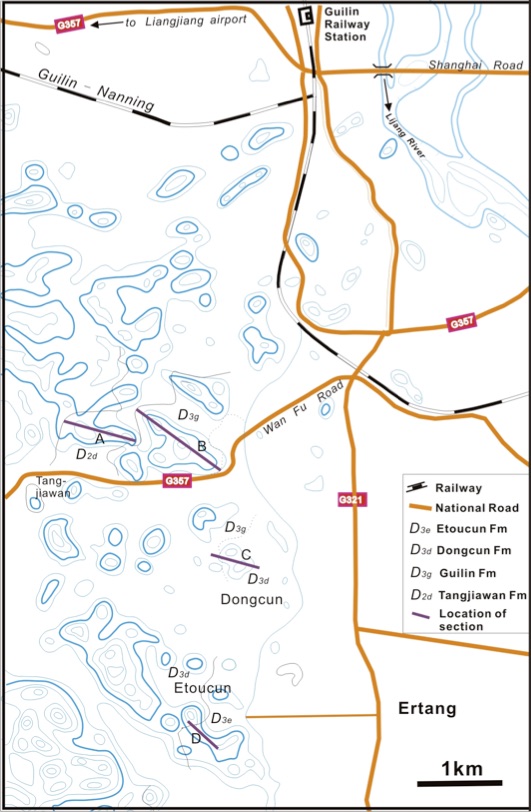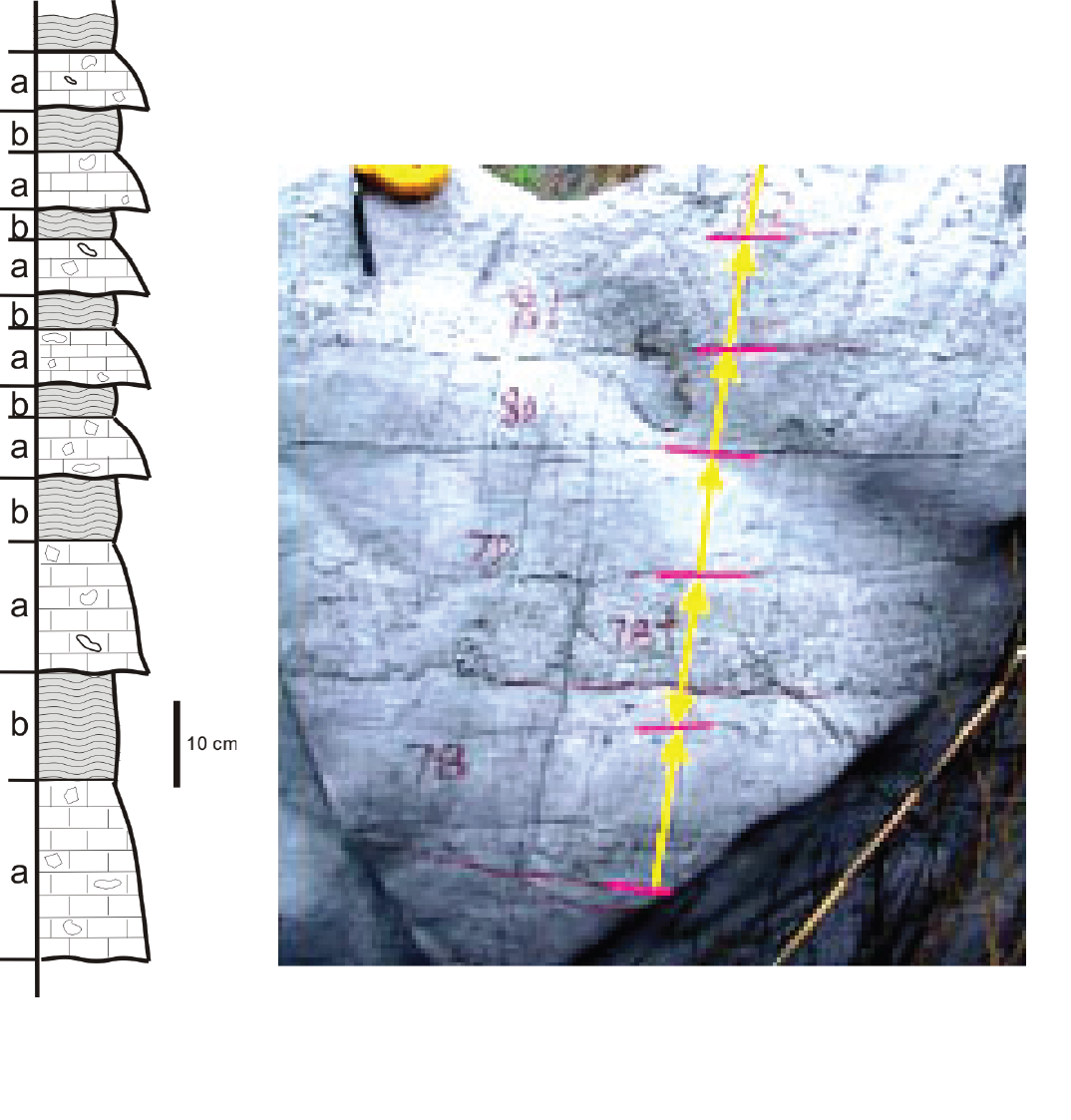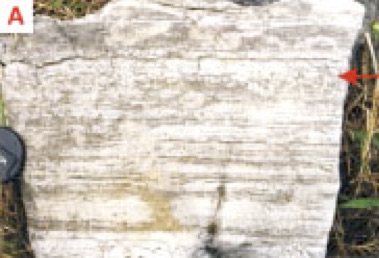Dongcun Fm
Type Locality and Naming
The type section is located in near Dongcun Village, the Ertang Town south of Guilin City (25°12′20″N-110°16′15.0″E). Yin Boa'an et al. (1978) suggested a name of Dongcun Fm specifically for those Famennian stratigraphic units of the Rongxian Fm developed on the restricted platform of Guangxi = Guilin column location.
[Figure - Topographical map of the southern suburb of Guilin City, Guangxi showing the type localities of the Tangjiawan Fm (A), Guilin Fm (B), Dongcun Fm (C) and Etoucun Fm (D).]
Lithology and Thickness
Limestone. This formation consists of medium- to thick-bedded detrital limestone, dolomitic peloidal limestone and fine-crystalline dolomite. A thick, well-bedded sequence consisting of Amphipora beds with fenestral and algae laminated beds are characterized facies. The formation is easily distinguished from overlying and underlying formations by 1. very light, grayish-white in color, 2. fine-laminated calcilutites with the fenestral structure, and desiccation cracks as well as the shallowing upward sequences (Figure), 3. megafossils such as corals, stromatoporoids and brachiopods missing or rare and algae, foraminiferas and ostracods common. Approximately 500 m thick in the type locality.
[Figure Left figure—Synchronization of bird-eye calcarenites (a, filled with calcite spar) and laminated calcilutites (b, algae mats) representing the regressive part of cycle in the part of Dongcun Formation at Fuposhan Hill, Guilin (left, after Tang and Qiu, 2000). Right figure— Fenestral limestone showing asymmetrical cycles (arrows) and the symmetric cycle (double arrows) at type locality of Dongcun Formation ((after Chen Daizhou, 2016).]
[Figure Planar thin laminate with rip-up pebble layer (red arrow) of Dongcun Fm. Camera cap 6 cm for scale (after Chen Daizhou, 2016).]
Relationships and Distribution
Lower contact
The base of the formation is marked by the grayish-white peloidal limestone with bird-eye structure that conformably overlies the dark-gray bioclastic or stromatoporoid dolomitic limestone of the underlying Guilin Fm.
Upper contact
It is overlain by the dark-gray bioclastic limestone of the Etoucun Fm.
Regional extent
Lateral transition from Rongxian Fm. The formation is mainly distributed in Guilin area. In the Quanzhou of northern Guangxi some gypsum beds are presented
GeoJSON
Fossils
Megafossils are very scarce except for rare occurrence of the brachiopods Cyrtospirifer sp. and Yunnanella sp. in the argillaceous interbeds. A few of microfossils include foraminifers Bisphaera sp., Eovolutina sp., Septatournayella rausraea and ostracods Leperdtia mansueta.
Age
Depositional setting
The bird's-eye structures, the algae finely-laminated sequence and some dolomite layers indicate a low energy tidal flat environments with meteoric water influence.
Additional Information


